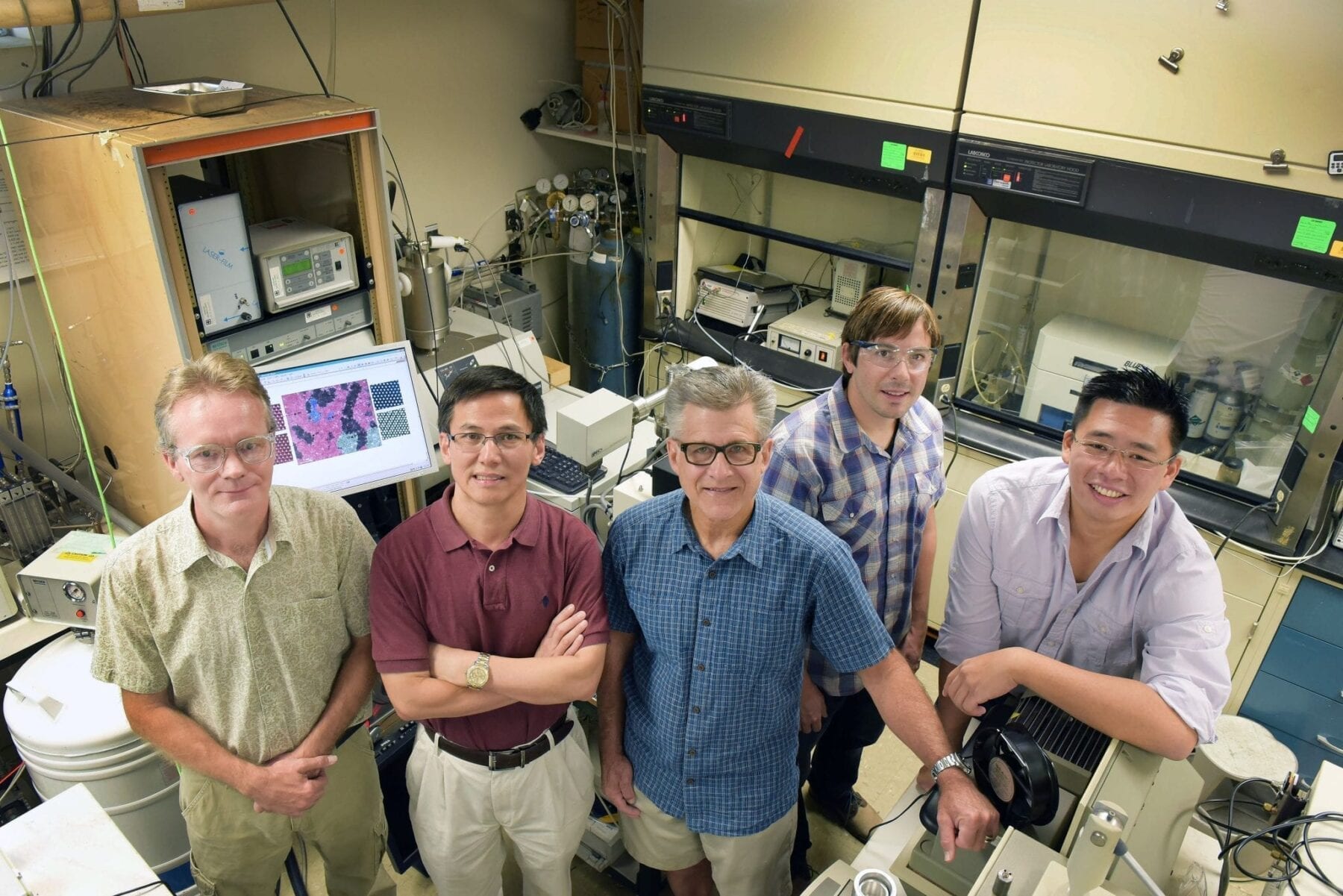
A BLOOD TEST THAT can predict with 90 percent accuracy if a healthy person will develop mild cognitive impairment (MCI) or Alzheimer’s disease within three years
A BLOOD TEST THAT can predict with 90 percent accuracy if a healthy person will develop mild cognitive impairment (MCI) or Alzheimer’s disease within three years has been discovered and validated by researchers at Georgetown and six other institutions.
The study team explains in the April issue of Nature Medicine (the paper was published online today) how they discovered and then validated a set of 10 lipid biomarkers in the blood that predict both conditions.
The discovery heralds the possible development of earlier treatment options for Alzheimer’s, when therapy could be more effective at slowing or even preventing onset of the disease.
“Our novel blood test offers the potential to identify people at risk for progressive cognitive decline and can change how patients, their families and treating physicians plan for and manage the disorder,” says the study’s corresponding author, Dr. Howard J. Federoff, executive vice president of health sciences at Georgetown University Medical Center.
There is currently no cure or effective treatment for Alzheimer’s disease, which, according to the World Health Organization, is expected to double every 20 years worldwide – from 35.6 million individuals in 2010 to 115.4 million by 2050.
Federoff, also a professor of neurology, explains there have been many efforts to develop drugs to slow or reverse the progression of Alzheimer’s disease, but all of them have failed. He says one reason may be the drugs were evaluated too late in the disease process.
“The preclinical state of the disease offers a window of opportunity for timely disease-modifying intervention, and biomarkers defining this asymptomatic period are critical for successful development and application of these therapeutics,” says Federoff.
‘MAJOR STEP FORWARD’
“The lipid panel was able to distinguish with 90 percent accuracy these two distinct groups – cognitively normal participants who would progress to MCI or AD within two to three years, and those who would remain normal in the near future,” says Federoff, who also serves as executive dean of the School of Medicine.
Researchers say the panel reveals changes in the breakdown of neural cell membranes resulting in 10 identifiable lipids, or metabolites, circulating in the blood. In particular, two of the 10 metabolites have strong links to the neuropathology of Alzheimer’s.
“We consider our results a major step toward the commercialization of a preclinical disease biomarker test that could be useful for large-scale screening to identify at-risk individuals,” Federoff concludes. “We’re intending to design a clinical trial where we’ll use this panel to identify people at high risk for Alzheimer’s to test a therapeutic agent that might delay or prevent the emergence of the disease.”
The Latest on: New blood test
[google_news title=”” keyword=”new blood test” num_posts=”10″ blurb_length=”0″ show_thumb=”left”]
via Google News
The Latest on: New blood test
- FDA considers updating blood donation guidelines to keep nation’s supply safe from malariaon May 9, 2024 at 4:09 pm
The US Food and Drug Administration is considering a requirement for blood banks to use a new test that can detect the parasites that cause malaria in certain donors’ blood, and it’s seeking the ...
- Pancreatic Cancer Is Hard to Detect in Early Stages. A New Blood Test Could Helpon May 3, 2024 at 11:46 am
A liquid biopsy can detect 97% of stage 1 and 2 pancreatic cancer cases, according to an early clinical trial. Blood tests could help improve early detection for the deadly cancer.
- Simple blood test could allow doctors to determine a person’s risk for stroke or cognitive declineon May 2, 2024 at 9:14 am
A simple blood test could allow doctors to determine whether a person may be at higher risk for stroke or cognitive decline during their lifetime, according to a new UCLA Health study.
- Blood test detects signs of osteoarthritis 8 years before X-rayon April 29, 2024 at 11:34 am
Researchers have created a new blood test that could lead to earlier intervention for those with osteoarthritis.
- An AI blood test purports to diagnose postpartum depressionon April 29, 2024 at 5:00 am
A new AI-powered blood test from Dionysus Health claims to be able to improve the diagnosis and treatment of postpartum depression.
- Blood Test Might Predict Knee Osteoarthritis Years Earlyon April 29, 2024 at 3:44 am
A blood test could help doctors spot the signs of knee osteoarthritis at least eight years before it shows up on X-rays, a new study claims. After analyzing the blood of 200 white British women, half ...
- New blood test shows promise in early detection of ovarian canceron April 28, 2024 at 7:28 pm
A new paper published in the British Journal of Cancer explores the potential utility of glycoproteins as biomarkers of EOC. In the future, these types of models might allow the diagnosis of EOC to be ...
- Blood test might someday diagnose early MSon April 27, 2024 at 6:10 am
An early marker of multiple sclerosis could help doctors figure out who will eventually fall prey to the degenerative nerve disease, a new study says.
- New blood test could diagnose traumatic brain injuries quicklyon April 26, 2024 at 5:00 pm
The process to diagnose these traumatic brain injuries can be tedious, but new FDA approval for a blood test could be a game changer for this field. “The Abbott i-STAT TBI blood test is ...
- Blood test finds knee osteoarthritis up to 8 years before it appears on X-rayson April 26, 2024 at 3:22 pm
Detecting knee osteoarthritis with a blood test up to eight years before it appears on X-rays -- as researchers have done -- could lead to therapies that delay disease progression and restore joint ...
via Bing News










